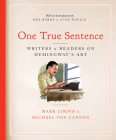A moving, unflinching memoir of hard-won success, struggles with addiction, and a lifelong mission to give back—from the late iconic actor beloved for his roles in The Wire, Boardwalk Empire, and Lovecraft Country

When Michael K. Williams died on September 6, 2021, he left behind a career as one of the most electrifying actors of his generation. From his star turn as Omar Little in The Wire to Chalky White in Boardwalk Empire to Emmy-nominated roles in HBO’s The Night Of and Lovecraft Country, Williams inhabited a slew of indelible roles that he portrayed with a rawness and vulnerability that leapt off the screen. Beyond the nominations and acclaim, Williams played characters who connected, whose humanity couldn’t be denied, whose stories were too often left out of the main narrative.
At the time of his death, Williams had nearly finished a memoir that tells the story of his past while looking to the future, a book that merges his life and his life’s work. Mike, as his friends knew him, was so much more than an actor. In Scenes from My Life, he traces his life in whole, from his childhood in East Flatbush and his early years as a dancer to his battles with addiction and the bar fight that left his face with his distinguishing scar. He was a committed Brooklyn resident and activist who dedicated his life to working with social justice organizations and his community, especially in helping at-risk youth find their voice and carve out their future. Williams worked to keep the spotlight on those he fought for and with, whom he believed in with his whole heart.
Imbued with poignance and raw honesty, Scenes from My Life is the story of a performer who gave his all to everything he did—in his own voice, in his own words, as only he could.










